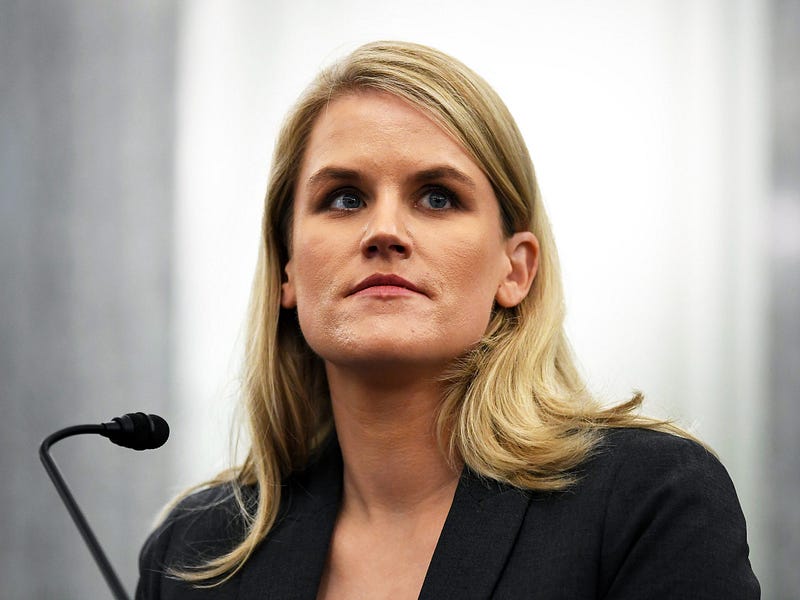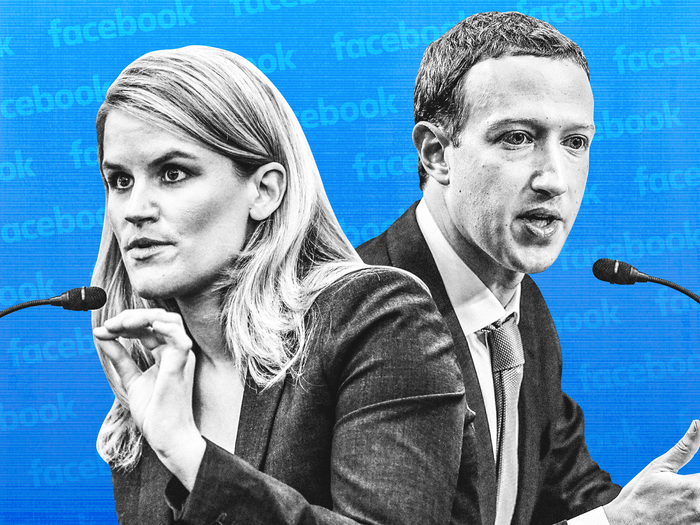The Impact of Frances Haugen's Whistleblowing on Facebook
Written on
Understanding Frances Haugen's Departure from Facebook
Frances Haugen, a former product manager at Facebook, became a whistleblower when she disclosed thousands of internal documents to the Wall Street Journal and the US Congress. Her disclosures highlighted how Facebook prioritizes profit over public safety, harms mental well-being, propagates misinformation, and threatens democratic processes.

Haugen joined Facebook in 2019, working on the Civic Integrity team, which focused on preventing election interference and political violence. With a background in computer science and data science, she previously held positions at Google, Pinterest, and Yelp. Initially enthusiastic about Facebook’s potential to connect and empower people, Haugen quickly became disillusioned by what she described as a "toxic" and "deceptive" company culture.
Section 1.1 Haugen's Observations on Facebook's Culture
Haugen asserted that Facebook’s leadership was aware of the detrimental effects its products had on users and society but chose to ignore these issues to prioritize growth and profits. She claimed the company manipulated research findings to support its decisions while silencing dissenting opinions within the organization. Furthermore, Haugen noted that Facebook’s algorithms often promoted divisive content, such as hate speech and conspiracy theories, since these generated higher engagement and ad revenue.
Subsection 1.1.1 Haugen's Moral Dilemma
Faced with resistance to her concerns internally, Haugen felt compelled to expose Facebook's malpractices to the public. She believed that by doing so, she could foster accountability and encourage regulatory measures. Thus, she took significant personal risks, including jeopardizing her career and safety, to leak these documents.

Key Revelations from the Leaks
You might wonder what significant findings emerged from Haugen's leaks. In September 2021, the Wall Street Journal published a series titled "The Facebook Files," based on tens of thousands of pages of documents she provided. Haugen also testified before the US Senate Commerce Subcommittee on Consumer Protection in October 2021.
Section 1.2 Major Findings of the Leaks
Haugen's leaks revealed numerous critical issues concerning Facebook and its services, including Instagram. Some notable points include:
- Impact on Teen Mental Health: Internal reports indicated that Instagram negatively affected teenagers' mental health, contributing to increased feelings of depression, anxiety, and even suicidal thoughts. Despite this knowledge, Facebook lacked a robust strategy to address these issues.
- Criminal Misuse of the Platform: There were concerns about the use of Facebook by criminal organizations such as human traffickers and drug cartels, with the company's response deemed insufficient.
- Foreign Interference in Elections: Haugen pointed out that Facebook was aware of foreign entities exploiting its platform to disseminate misinformation and influence elections, prioritizing business interests over civic responsibility.
- Incitement of Violence: The platform's role in exacerbating violence in regions like Myanmar and India raised alarms, with failures in enforcing policies against hate speech and misinformation.
- Societal Polarization: Facebook's algorithms were criticized for creating echo chambers, leading users to predominantly encounter content that echoed their existing beliefs, further polarizing society.

The Aftermath of Haugen's Revelations
Haugen's disclosures have ignited a worldwide backlash against Facebook's operations, resulting in investigations and lawsuits from regulators, activists, and users across various nations. The implications of her revelations could lead to increased scrutiny and regulation of Facebook, which may enforce stricter rules surrounding data privacy, content moderation, and antitrust measures.
Challenges Ahead for Facebook
Facebook now faces significant hurdles, including:
- Erosion of Trust: A growing skepticism among users, advertisers, and partners could damage Facebook’s reputation and brand value.
- Increased Competition: Emerging platforms that prioritize ethical practices could threaten Facebook’s market position.
- Employee Discontent: Internal dissent could arise among stakeholders who disagree with the company's direction and values, impacting its culture and operational effectiveness.
The broader implications of Haugen's whistleblowing have prompted vital discussions about the responsibilities of technology companies in shaping societal norms. As public awareness of social media's psychological impacts grows, there may be increased demands for transparency and accountability from tech firms.
Looking Forward
This growing societal awareness could lead to more informed public discourse, encouraging better media literacy and fostering respect for diverse perspectives. Additionally, promoting a balanced approach to social media usage could enhance overall well-being in society.
Ultimately, Frances Haugen’s courageous actions not only shed light on critical issues within Facebook but also sparked a global conversation about the responsibilities of social media in our lives, aiming for a safer, more informed, and inclusive digital environment.